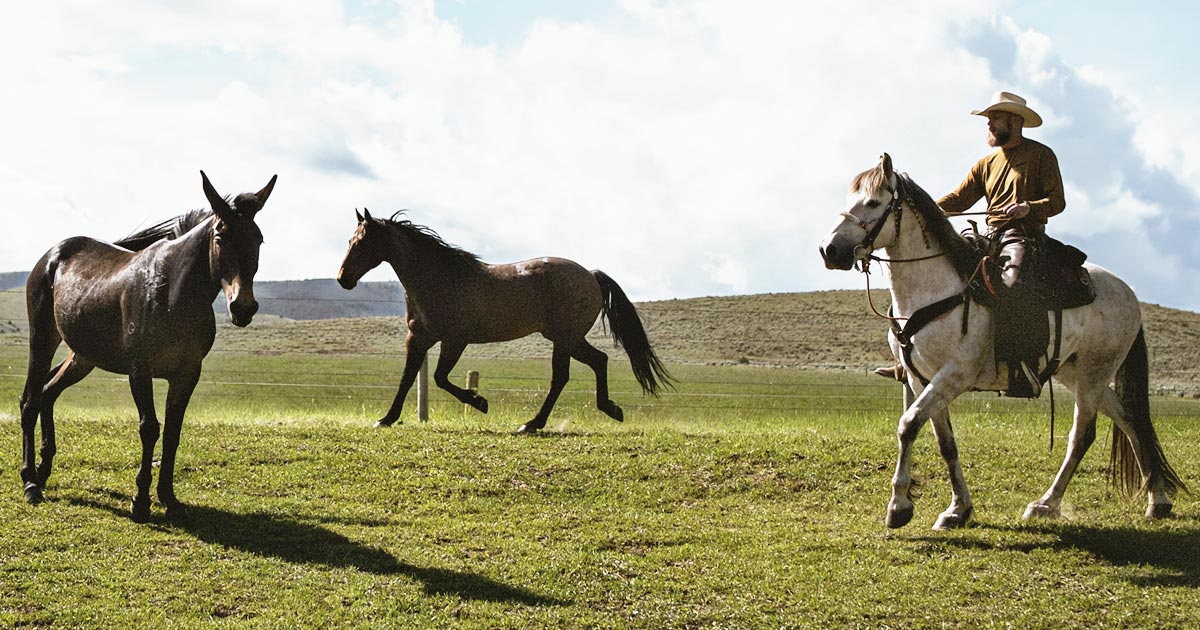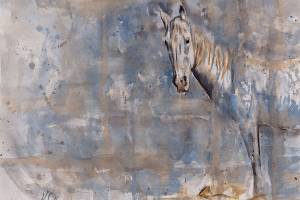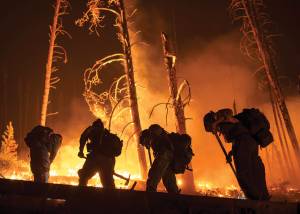Contains Affiliate Links
On the 3,500-acre Double-H Ranch south of Bozeman, near Virginia City, men are putting their lives back together. They come from all walks of life, and the majority have no ranch or horse experience. But there is a common denominator: they are all US Army or Marine veterans.
What started in 2014 as a dream is changing the lives of veterans through hard work, learning new skills, wholesome eating, mediation, reflection, and the healing power of horses.
The first summer, the program ran for two weeks, but it now encompasses a much more in-depth and transformative experience.
Currently, four groups of eight men each will participate in the 41-day summer program. The ultimate goal is to run year-round groups by 2025, when facilities like an indoor arena, bunkhouses for more participants, indoor gym, and lodge are finished.
A robust capital campaign has raised $7.8 million of its $10 million goal through generous donations from foundations, corporations, and individuals.
Started by veteran New York native and former Navy Seal Micah Fink, Horses and Heroes came about as a way to answer many of Fink’s own issues after finishing his service.
Going from a purpose-driven life to one without structure or direction is often difficult for combat veterans. Fink traveled to Montana in 2013 to work with a couple buddies on ranches, where it quickly became clear to him that working with horses in particular caused a sea change in his post-Seal existence. Fink figured if he benefited from ranch life and working with horses, then other combat veterans might benefit as well.
Today, Fink continues to work on the ranch, helping other vets to embrace change and move in a positive direction with their lives.
The application period for the program opened in January and ended March 30th. Each year many more veterans apply than the program has room for. Last year 170 vets applied for 24 spots. Fink and program director Chloe Garrison carefully consider all applications, to find the men they feel can most benefit from the program. Every applicant gets a phone call to let them know their status. Those vets who are accepted to Horses and Heroes get suggestions on how to prepare for the experience. Often times, these vets, whose average age is 40, need to get into better shape before they can handle full days of hard, physical exertion.
“It’s a mile from the cabins to the kitchen area for meals,” explains Karynne Anderson, the program marketing manager, adding that the program isn’t for everyone. There is a lot of hard physical and mental work to be done,” she says. “By the end of the session, each vet will hike 80 miles just to get to meals.”
To promote whole-person healing, vets adhere to a diet with no sugar, carbohydrates or alcohol, and, of course, no drugs, along with daily, 30-minute meditation sessions. In addition, the vets ride 500 to 600 miles on horseback, complete 40 workouts, take 40 ice baths, engage in two traditional Lakota sweat rituals, and spend 19 days in wild country on a strenuous pack trip.
“Day one is go-time,” says Anderson. “The men are busy from sun up to sun down.”
A full-time ranch director and his wife are on the premises year-round.
“The director is the instructor for all the horse work,” says Anderson. “He’s able to successfully match men with the right horse, which they’ll keep for the entire 41 days.”
Horse handling begins with the basics, including simple things like catching a horse and putting a halter on. From there, vets learn how to care for their horse, how to rope cattle, and how to prepare and tie on packs in preparation for the end-of-session pack trip.
“These are not all super easy, dead-broke horses,” Anderson explains. “The horses need to provide a challenge for the men to work through as they become the leader in the partnership. Horses are always looking for a leader, and that’s what we want the men to become.”
After four weeks of intense horse training and physical and mental challenges for the vets, the program finale is an 11-day pack trip with each man on his horse and leading a mule.
“This trip in the wilderness almost always has an Ah-Ha! moment for the men,” says Anderson. “It’s truly life changing.”
The program, Anderson stresses, helps students to change their perspective on hardship and adversities. These challenges are a part of life, and, with the insight and mental/emotional tools the vets learn at Horses and Heroes, the men can find meaning and purpose in their lives again. ISI
For more information, including the on-line application, go to horsesandheroes.org









